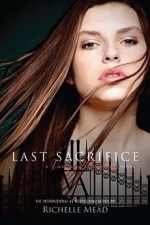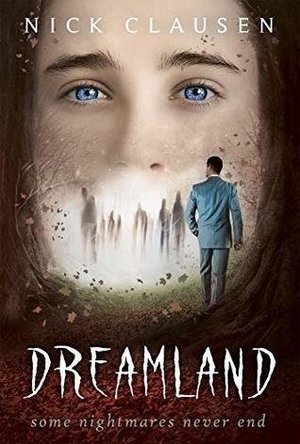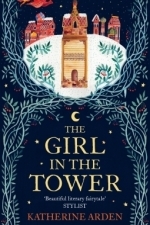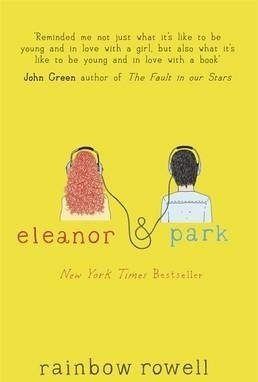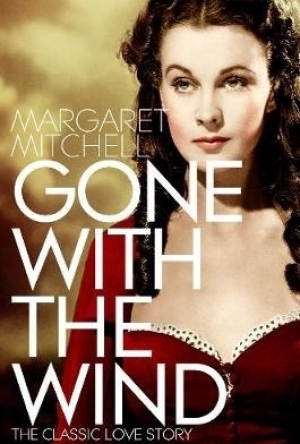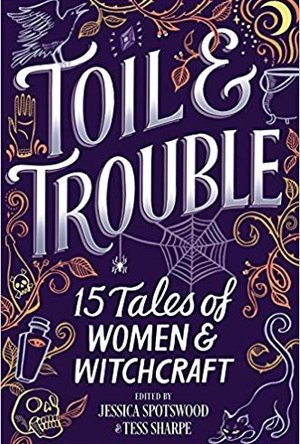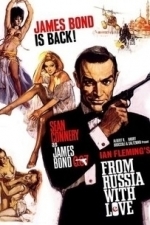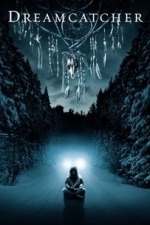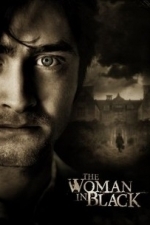Search
Search results
Rachel King (13 KP) rated Last Sacrifice in Books
Feb 11, 2019
I waited a long time to read this book, but it was still well worth the wait. In typical Rose fashion, she disregards the practical advice of her friends and family to try and help those she cares about most. Embarking on a road trip around the eastern United States, she searches for the clues to the missing Dragomir heir, all the while growing closer to the newly-Moroi Demitri. All the while, Lissa navigates the intricacies of the Royal Court and deals with being thrust into the running for the new Queen.
All the recognizable faces from throughout the series make an appearance in the final book, as any good series finale would do. All but one of the loose ends were resolved decently, such as dealing with the problem of the Dashkov brothers.
The trials that Lissa goes through to be declared a valid candidate for Queen were interesting in that they forced her to rely on only herself and tested her inner strength and resolve. They showed a maturity in her that goes far beyond her young 18 years.
Of course, the biggest anticipation for me was the final outcome of who would end up with Rose - Dimitri or Adrian. While at first I disliked Adrian, he seemed to prove his worthiness to me throughout the series. The road trip, though, forces Dimitri to heal from his memories as Strigoi and face some things about himself. Without giving away Rose's choice, I am happy with it, though I feel sorry for the man that got left behind. The promise of the spin-off series, Bloodlines, centered around the Alchemist Sydney, gives me hope that he will find someone who matches him better than Rose did.
The ending answers my own question of what the title was referring to, though it was a bit predictable. I am thrilled about the outcome of the Queen's replacement, and I really hope that the spin-off series will also show some of the new Queen's life. What was not predictable for me was the revelation of who murdered the previous queen - I made the same assumption early on as most of Rose's allies did, and I was just as surprised as they were over who really did it - and I'm still kind of disappointed, since I liked the character responsible and I feel as betrayed as many of the others did by the news. When the characters can feel that real, I know it's good writing.
All the recognizable faces from throughout the series make an appearance in the final book, as any good series finale would do. All but one of the loose ends were resolved decently, such as dealing with the problem of the Dashkov brothers.
The trials that Lissa goes through to be declared a valid candidate for Queen were interesting in that they forced her to rely on only herself and tested her inner strength and resolve. They showed a maturity in her that goes far beyond her young 18 years.
Of course, the biggest anticipation for me was the final outcome of who would end up with Rose - Dimitri or Adrian. While at first I disliked Adrian, he seemed to prove his worthiness to me throughout the series. The road trip, though, forces Dimitri to heal from his memories as Strigoi and face some things about himself. Without giving away Rose's choice, I am happy with it, though I feel sorry for the man that got left behind. The promise of the spin-off series, Bloodlines, centered around the Alchemist Sydney, gives me hope that he will find someone who matches him better than Rose did.
The ending answers my own question of what the title was referring to, though it was a bit predictable. I am thrilled about the outcome of the Queen's replacement, and I really hope that the spin-off series will also show some of the new Queen's life. What was not predictable for me was the revelation of who murdered the previous queen - I made the same assumption early on as most of Rose's allies did, and I was just as surprised as they were over who really did it - and I'm still kind of disappointed, since I liked the character responsible and I feel as betrayed as many of the others did by the news. When the characters can feel that real, I know it's good writing.
Amanda (96 KP) rated Dreamland: A Ghost STory in Books
Apr 17, 2019
I would like to give a HUGE thank you to the author for giving me the chance to read his book and review it! I like quick reads, especially ones that make it difficult to put down. Why must I have to go back to reality? Can't I have my OWN dreamland? Without the demonic sirens?
Do you often remember your dreams? Most of the time, I don't and I always saw it as more of a blessing than anything. Who knows what my head concocted in my sleep. How about dreaming of someone whom you never really got to meet? Louie is twelve and never got the chance to know his father before he died of cancer. Now, he's dreaming of a man in a blue suit, who happens to look like his father and knows stuff about him and his mother.
Louie is dreaming of his father and they can talk and be together in a place called Dreamland. Sounds like a good thing, doesn't it? Don't be fooled! Everything has a price.
It's hard explain to his mother, however. Louie knows things his father told him that he couldn't possibly know from anybody else. So...what is this Dreamland and is it too good to be true?
This novel is the first one I've read from Nick Clausen and like I said, it was difficult to put down. I enjoyed the way the story was written. It's not told in any specific point of view from the characters, so you're able to know what's going on with this situation and the other without having to switch POVs.
Sirens are no joke! If you've read any bit of Mythology, you would know just how awful these creatures are. They are fun to read about, but damn, I don't want them in my dreams, not ever.
I would definitely categorize this as horror, but not going as far as to say Stephen King or watching an episode of the Twilight Zone. I think of it more as Goosebumps or Are You Afraid of the Dark? Don't knock that show. That was my show growing up in the 90s. I'm babbling, which is part of my charm.
I enjoyed reading this story and I felt bad for Louie and his mother, but I'm happy with how it ended and feel like there would have been no other way to do it. A quick read...but not in the dark.
Do you often remember your dreams? Most of the time, I don't and I always saw it as more of a blessing than anything. Who knows what my head concocted in my sleep. How about dreaming of someone whom you never really got to meet? Louie is twelve and never got the chance to know his father before he died of cancer. Now, he's dreaming of a man in a blue suit, who happens to look like his father and knows stuff about him and his mother.
Louie is dreaming of his father and they can talk and be together in a place called Dreamland. Sounds like a good thing, doesn't it? Don't be fooled! Everything has a price.
It's hard explain to his mother, however. Louie knows things his father told him that he couldn't possibly know from anybody else. So...what is this Dreamland and is it too good to be true?
This novel is the first one I've read from Nick Clausen and like I said, it was difficult to put down. I enjoyed the way the story was written. It's not told in any specific point of view from the characters, so you're able to know what's going on with this situation and the other without having to switch POVs.
Sirens are no joke! If you've read any bit of Mythology, you would know just how awful these creatures are. They are fun to read about, but damn, I don't want them in my dreams, not ever.
I would definitely categorize this as horror, but not going as far as to say Stephen King or watching an episode of the Twilight Zone. I think of it more as Goosebumps or Are You Afraid of the Dark? Don't knock that show. That was my show growing up in the 90s. I'm babbling, which is part of my charm.
I enjoyed reading this story and I felt bad for Louie and his mother, but I'm happy with how it ended and feel like there would have been no other way to do it. A quick read...but not in the dark.
Goddess in the Stacks (553 KP) rated The Girl in The Tower: The Winternight Trilogy in Books
Mar 22, 2018
The Girl in the Tower is the second in the Winternight Trilogy, after the acclaimed debut novel, The Bear and the Nightingale. It's always hard to talk about sequels without giving too much away about the preceding books, so forgive me if I'm vague. One advantage to waiting so long to read The Bear and the Nightingale was that I got to jump straight into the sequel! Now I have to several months for the third.
The Girl in the Tower revisits our heroine, Vasya, from the first book. Now she has left home to begin her adventures - though her travels are curtailed pretty quickly, and she's roped into going to Moscow with her brother and the Grand Prince, while disguised as a boy. While in Moscow she learns a little bit more about her family history, and I'm hoping the rest will be revealed in the third book this summer. (The Winter of the Witch is scheduled to release in August 2018.)
In this second book, Vasya has done some growing, and has learned to make use of the spirits she sees - she knows the hearth spirits can always find their families, and uses that trait to track a kidnapped girl when no one else can. So long as no one realizes what she's doing, she's fine. But Rus is in the crossover period between the old ways and the new, and if she's found talking to spirits, she'll be branded a witch all over again. She keeps her masquerade going through the first two-thirds of the book, but it's obvious it's going to fail eventually. The way in which it does is sudden and unexpected, and the repercussions are harsh.
And then there's Morozko, the Frost Demon, the god of death. I love Morozko. He's by necessity enigmatic - and in a rough position. I want he and Vasya to fall in love and have a happy ending - the attraction between them is impossible to miss - but immortal beings, in this world, can't love. If they love they lose their immortality. And, possibly, their lives entirely. I hope the author has a solution in mind for these two, because I currently don't see one.
I actually liked this one more than the first book, which is unusual. I liked the first one, but I wasn't blown away. This one pulled me in and didn't let me go. Amazing sequel, and I hope the third one lives up to this standard!
You can find all my reviews at http://goddessinthestacks.wordpress.com
The Girl in the Tower revisits our heroine, Vasya, from the first book. Now she has left home to begin her adventures - though her travels are curtailed pretty quickly, and she's roped into going to Moscow with her brother and the Grand Prince, while disguised as a boy. While in Moscow she learns a little bit more about her family history, and I'm hoping the rest will be revealed in the third book this summer. (The Winter of the Witch is scheduled to release in August 2018.)
In this second book, Vasya has done some growing, and has learned to make use of the spirits she sees - she knows the hearth spirits can always find their families, and uses that trait to track a kidnapped girl when no one else can. So long as no one realizes what she's doing, she's fine. But Rus is in the crossover period between the old ways and the new, and if she's found talking to spirits, she'll be branded a witch all over again. She keeps her masquerade going through the first two-thirds of the book, but it's obvious it's going to fail eventually. The way in which it does is sudden and unexpected, and the repercussions are harsh.
And then there's Morozko, the Frost Demon, the god of death. I love Morozko. He's by necessity enigmatic - and in a rough position. I want he and Vasya to fall in love and have a happy ending - the attraction between them is impossible to miss - but immortal beings, in this world, can't love. If they love they lose their immortality. And, possibly, their lives entirely. I hope the author has a solution in mind for these two, because I currently don't see one.
I actually liked this one more than the first book, which is unusual. I liked the first one, but I wasn't blown away. This one pulled me in and didn't let me go. Amazing sequel, and I hope the third one lives up to this standard!
You can find all my reviews at http://goddessinthestacks.wordpress.com
SunnyD (6 KP) rated Eleanor & Park in Books
Jun 15, 2018 (Updated Jun 16, 2018)
Realistic adolescent love (1 more)
Natural plot progression
Unrealistic conflict resolution (1 more)
So many questions
The feels, and then let down...
Contains spoilers, click to show
This books grabbed me right from the beginning. At first, I was really interested in Eleanor's life and how she'd gotten to where she was. I was heartbroken by the way she was made to live. Her circumstances really made me feel for her. Her growing relationship with Park was perfection. It was a sweet reminder of what it's like to fall in love as a teen. The development of their love was totally realistic.
I love that the book is narrated by both Eleanor and Park. I even loved that some of their parts were so short. The short parts really made a statement. This book is a great example of simplistic but powerful writing. I really fell in love with it.
I could not put it down as it lead up to it's climax. Unfortunately, it went a little downhill for me there. I can only explain with spoiling it. Park's father giving him the okay to drive Eleanor across state by himself in the middle of the night with Eleanor's abusive stepdad running looking like crazy for her when Park just barely got his license raised some questions for me. I'm not even sure that he knew Park's mom let him get his license without him knowing. And then Park's father tells him that he can do this for Eleanor on one condition: that he do so driving his manual transmission truck to prove that he can drive stick. This is where things got ridiculous. This was an emergency and these are young teenagers. Park proving he can finally drive stick so that he can take Eleanor to Minnesota felt out of place in this situation. The "sex scene" was not written with the same care as the rest of the book before they left home.
And then there's the ending. I'm conflicted by this. I actually understand why Eleanor might've wanted to cut connections off with Park. It was natural for Park to try to move on after a year of not hearing from her. The ending with the unknown three-word postcard from Eleanor left me wanting more. Not knowing what she said was also upsetting though. It was probably upsetting because I was upset with the conflict resolution.
I read an interview with the author where she stated that she may be thinking about writing for these characters again. I have hope that she may redeem the story but it's been a while.
I love that the book is narrated by both Eleanor and Park. I even loved that some of their parts were so short. The short parts really made a statement. This book is a great example of simplistic but powerful writing. I really fell in love with it.
I could not put it down as it lead up to it's climax. Unfortunately, it went a little downhill for me there. I can only explain with spoiling it. Park's father giving him the okay to drive Eleanor across state by himself in the middle of the night with Eleanor's abusive stepdad running looking like crazy for her when Park just barely got his license raised some questions for me. I'm not even sure that he knew Park's mom let him get his license without him knowing. And then Park's father tells him that he can do this for Eleanor on one condition: that he do so driving his manual transmission truck to prove that he can drive stick. This is where things got ridiculous. This was an emergency and these are young teenagers. Park proving he can finally drive stick so that he can take Eleanor to Minnesota felt out of place in this situation. The "sex scene" was not written with the same care as the rest of the book before they left home.
And then there's the ending. I'm conflicted by this. I actually understand why Eleanor might've wanted to cut connections off with Park. It was natural for Park to try to move on after a year of not hearing from her. The ending with the unknown three-word postcard from Eleanor left me wanting more. Not knowing what she said was also upsetting though. It was probably upsetting because I was upset with the conflict resolution.
I read an interview with the author where she stated that she may be thinking about writing for these characters again. I have hope that she may redeem the story but it's been a while.
Hazel (1853 KP) rated The Cure for Dreaming in Books
Dec 7, 2018
<i>I received this book for free through Goodreads First Reads.</i>
On her seventeenth birthday 1900, Olivia Meade gets invited onto a stage to be hypnotized by the young Monsieur Henri Reverie in this historical, paranormal novel. In Oregon at this period of time women were not allowed to vote in presidential elections and Olivia’s father is determined that she does not get influenced by the campaigning suffragists. On hearing about the hypnotist, Dr. Meade hires him with the job of removing the “selfish” and “unladylike dreams” from his daughter’s head. However this causes Olivia more problems than expected. She begins to see horrible images but are these as a result of Henri telling her “you will see the world the way it truly is”, or is she hallucinating as a result of reading Dracula more times than necessary?
<i>The Cure For Dreaming</i> contains a mix of historical references and paranormal ideas as both Henri and Olivia struggle to find a successful way of reversing the effects of the hypnosis as well as involving themselves in the women’s suffrage movement.
Cat Winters, despite the added fantasy elements, has kept the book historically accurate. A typical novel about women’s equality would result in life changing successes, however as Oregon did not did not gain full suffrage until 1912 this of course was not impossible to include in <i>The Cure For Dreaming</i>. Ultimately it is a novel about growing up to be who you want to be and knowing your own mind rather than succumbing to the “natural” views of society.
The writing is contemporary and easy to understand which makes it suitable for ages twelve and older. The downside to this is that it detracts from the historical setting, making Olivia appear a lot more modern than she actually is. Apart from mimicking a classic novel type style, which would make it less suitable for its target audience, there is not a lot that can be done about that.
Between chapters of the book are relevant photographs or images from the appropriate time period, which help to illustrate the events in the plot. There are also quotes from authors such as Kate Chopin and Mark Twain as well as more political lines from various speeches. These also help to provide an understanding of the historical setting.
Overall <i>The Cure For Dreaming</i> is a great book for teenagers. There may be paranormal themes but it is not a horror novel, in fact there is just as much romance as anything else.
On her seventeenth birthday 1900, Olivia Meade gets invited onto a stage to be hypnotized by the young Monsieur Henri Reverie in this historical, paranormal novel. In Oregon at this period of time women were not allowed to vote in presidential elections and Olivia’s father is determined that she does not get influenced by the campaigning suffragists. On hearing about the hypnotist, Dr. Meade hires him with the job of removing the “selfish” and “unladylike dreams” from his daughter’s head. However this causes Olivia more problems than expected. She begins to see horrible images but are these as a result of Henri telling her “you will see the world the way it truly is”, or is she hallucinating as a result of reading Dracula more times than necessary?
<i>The Cure For Dreaming</i> contains a mix of historical references and paranormal ideas as both Henri and Olivia struggle to find a successful way of reversing the effects of the hypnosis as well as involving themselves in the women’s suffrage movement.
Cat Winters, despite the added fantasy elements, has kept the book historically accurate. A typical novel about women’s equality would result in life changing successes, however as Oregon did not did not gain full suffrage until 1912 this of course was not impossible to include in <i>The Cure For Dreaming</i>. Ultimately it is a novel about growing up to be who you want to be and knowing your own mind rather than succumbing to the “natural” views of society.
The writing is contemporary and easy to understand which makes it suitable for ages twelve and older. The downside to this is that it detracts from the historical setting, making Olivia appear a lot more modern than she actually is. Apart from mimicking a classic novel type style, which would make it less suitable for its target audience, there is not a lot that can be done about that.
Between chapters of the book are relevant photographs or images from the appropriate time period, which help to illustrate the events in the plot. There are also quotes from authors such as Kate Chopin and Mark Twain as well as more political lines from various speeches. These also help to provide an understanding of the historical setting.
Overall <i>The Cure For Dreaming</i> is a great book for teenagers. There may be paranormal themes but it is not a horror novel, in fact there is just as much romance as anything else.
BookwormMama14 (18 KP) rated Gone with the Wind in Books
Jan 2, 2019
In 1861, Scarlett O'Hara is the belle of Georgia. Young, passionate and full of life. But when war comes, she is faced with hardships that she never even dreamed possible.
"Hardships make or break people."
Follow Scarlett O'Hara and her family through the destruction and despair of the Civil War and the years that followed in Reconstruction. With the old way of life dead and gone, will she wilt away along with many others of her previous status and class? Or will she find the gumption to press on and strive for survival, no matter the cost? Her love for one man blinds her to the truth about herself and those around her. After everything she has been through, will she lose the one thing she desires above all else?
"After all, tomorrow is another day."
**If you are not familiar with this story please be aware of a few minor spoilers**
I have grown up watching Gone With the Wind, but somehow, I never got around to reading the book. I am happy to check this one off of my "Bucket (Reading) List". Very long, (hence my relative blogging silence) but worth every word. Margaret Mitchell's descriptions are so detailed! I could feel the Southern sun upon my skin and could smell the scent of the magnolias growing around Tara. If you have seen the movie you will know that this is not a happy tale. But there are very valuable lessons to be learned. After reading the last page today, I was thinking about what I wanted to say in my review. And I think that what stood out to me the most, is that sometimes we are so blinded by what we think we want, what we have idolized for so long, that we can not see true happiness when it stares us in the face. There have been times in my life that I wanted my life to go in a particular direction, but the Lord changed my course. For a time it was challenging to see the good in the situation. But I would come to the realization that if I had continued down that path, I would have been miserable. Instead, I am exactly where I need to be and am continuing to learn to put my trust in God, knowing that He knows best and that He is guiding my steps. For all of her faults, Scarlett is a woman I can admire. No matter what life threw at her, she would not let herself be beaten. Her determination for survival drove her to extremes. But survive she did.
"Hardships make or break people."
Follow Scarlett O'Hara and her family through the destruction and despair of the Civil War and the years that followed in Reconstruction. With the old way of life dead and gone, will she wilt away along with many others of her previous status and class? Or will she find the gumption to press on and strive for survival, no matter the cost? Her love for one man blinds her to the truth about herself and those around her. After everything she has been through, will she lose the one thing she desires above all else?
"After all, tomorrow is another day."
**If you are not familiar with this story please be aware of a few minor spoilers**
I have grown up watching Gone With the Wind, but somehow, I never got around to reading the book. I am happy to check this one off of my "Bucket (Reading) List". Very long, (hence my relative blogging silence) but worth every word. Margaret Mitchell's descriptions are so detailed! I could feel the Southern sun upon my skin and could smell the scent of the magnolias growing around Tara. If you have seen the movie you will know that this is not a happy tale. But there are very valuable lessons to be learned. After reading the last page today, I was thinking about what I wanted to say in my review. And I think that what stood out to me the most, is that sometimes we are so blinded by what we think we want, what we have idolized for so long, that we can not see true happiness when it stares us in the face. There have been times in my life that I wanted my life to go in a particular direction, but the Lord changed my course. For a time it was challenging to see the good in the situation. But I would come to the realization that if I had continued down that path, I would have been miserable. Instead, I am exactly where I need to be and am continuing to learn to put my trust in God, knowing that He knows best and that He is guiding my steps. For all of her faults, Scarlett is a woman I can admire. No matter what life threw at her, she would not let herself be beaten. Her determination for survival drove her to extremes. But survive she did.
Goddess in the Stacks (553 KP) rated Toil & Trouble: 15 Tales of Women & Witchcraft in Books
Dec 22, 2018
Toil & Trouble was a much-hyped anthology of YA stories, and I think it lived up to that hype. I really enjoyed almost every story in this book - only one or two of them were less than awesome. And they still weren't bad! Anthologies like this keep introducing me to yet more authors that I want to read, and just keep growing my TBR list! Some of the authors in this book I was familiar with; while I hadn't read her work yet, I met Zoraida Córdova at the Baltimore Book Festival, and she was amazing. I'm familiar with Brandy Colbert's work, and have not yet read Anna-Marie McLemore but desperately want to, and her story in this work (Love Spell) only increases that need.
I read this book just before Halloween, and it was a perfect choice. I'm not a fan of actual horror novels, which seem to be what everyone else is reading this time of year. Give me my strong witchy women! The stories in this book are all young women - teens to early adulthood - learning to rely on themselves. They embrace what family traditions mean to them, or break free of them entirely if they're the wrong path. They break social taboos and fall in love where they will. They FIGHT for what they want.
I think my favorite story in this book involved a woman whose powers had been bound by her coven until she was old enough to use them wisely, but had to watch her father die in an accident when she could have healed him if she'd had access to her magic. She went to an ancient place of power in the mountains and broke the binding, horrifying her coven. The story is actually about her defying them further in refusing her destined soul mate for the girl she's been in love with since she was a child, and Fate's punishment for that. The two girls fighting for each other and for their own magic was amazing. (The Heart in Her Hands, Tess Sharpe.) Unfortunately it doesn't look like it's part of a larger story, I was hoping for more in that world!
As far as I can tell, only one of the stories is part of something larger - I'm pretty sure Zoraida Córdova's story is part of her Brooklyn Brujas world. Other than that, they all appear to be standalones, which is a little sad as I'd like to see more of many of these worlds!
Toil & Trouble is an outstanding anthology of magical women, and I loved it.
You can find all my reviews at http://goddessinthestacks.com
I read this book just before Halloween, and it was a perfect choice. I'm not a fan of actual horror novels, which seem to be what everyone else is reading this time of year. Give me my strong witchy women! The stories in this book are all young women - teens to early adulthood - learning to rely on themselves. They embrace what family traditions mean to them, or break free of them entirely if they're the wrong path. They break social taboos and fall in love where they will. They FIGHT for what they want.
I think my favorite story in this book involved a woman whose powers had been bound by her coven until she was old enough to use them wisely, but had to watch her father die in an accident when she could have healed him if she'd had access to her magic. She went to an ancient place of power in the mountains and broke the binding, horrifying her coven. The story is actually about her defying them further in refusing her destined soul mate for the girl she's been in love with since she was a child, and Fate's punishment for that. The two girls fighting for each other and for their own magic was amazing. (The Heart in Her Hands, Tess Sharpe.) Unfortunately it doesn't look like it's part of a larger story, I was hoping for more in that world!
As far as I can tell, only one of the stories is part of something larger - I'm pretty sure Zoraida Córdova's story is part of her Brooklyn Brujas world. Other than that, they all appear to be standalones, which is a little sad as I'd like to see more of many of these worlds!
Toil & Trouble is an outstanding anthology of magical women, and I loved it.
You can find all my reviews at http://goddessinthestacks.com
Darren (1599 KP) rated From Russia With Love (1964) in Movies
Nov 7, 2019
Characters – James Bond is forced into his next mission which includes seducing a spy that is wanting to turn on Russia, he shows us again just how skilled he is when it comes to dealing with life and death situations and his awareness of dangers around him. Tatiana Romanova is the Russian spy that has offered to give up information for safety to England, she might not be as true as James is told about, even though we know she is being forced into this mission. Rosa Klebb is the one that is recruiting the agents with Tatiana and Grant being her picks to help SPECTRE eliminate James Bond. Grant is the newest recruit assassin, hard as nails, resourceful and everything James will find difficult to beat in a fight.
Performances – Sean Connery has grown into this role being even better than the first film, he become the superstar name after this outing. Daniela Bianchi is good for a Bond girl, she is stronger than the first one and now we know what type of women will get in this role. Robert Shaw as the villain is great, he looks cold calculated through every single scene.
Story – The story here is a lot more interesting than the first film, we learn early on about the SPECTRE plan which shows us how we have a growing villainous threat for Bond to tackle. This helps make the franchise even more enjoyable because it isn’t just Bond solving a case, it is him trying to stay ahead while we know the twists coming. The story leaves us open to learn more about SPECTRE in future film which again is a pleasure for the audience to be seeing. How everything unfolds well we know Bond can solve the problems he is facing and we get to see the start of the infamous gadgets.
Action/Adventure – The action in the film is bigger, the fights last longer and the adventure that Bond must go on is showing us just how big the terrorist battle will be.
Settings – The film takes place for the most part in Turkey, which shows us another neutral country in the middle of the battle, the train sequences could be argued to be the most enjoyable though.
Scene of the Movie – The gadgets being introduced.
That Moment That Annoyed Me – James Bond attitude toward women.
Final Thoughts – This is a wonderful second instalment in the franchise, it gives us a bigger threat for long term villains in SPECTRE and does have big action throughout.
Overall: The sequel that makes things bigger.
Performances – Sean Connery has grown into this role being even better than the first film, he become the superstar name after this outing. Daniela Bianchi is good for a Bond girl, she is stronger than the first one and now we know what type of women will get in this role. Robert Shaw as the villain is great, he looks cold calculated through every single scene.
Story – The story here is a lot more interesting than the first film, we learn early on about the SPECTRE plan which shows us how we have a growing villainous threat for Bond to tackle. This helps make the franchise even more enjoyable because it isn’t just Bond solving a case, it is him trying to stay ahead while we know the twists coming. The story leaves us open to learn more about SPECTRE in future film which again is a pleasure for the audience to be seeing. How everything unfolds well we know Bond can solve the problems he is facing and we get to see the start of the infamous gadgets.
Action/Adventure – The action in the film is bigger, the fights last longer and the adventure that Bond must go on is showing us just how big the terrorist battle will be.
Settings – The film takes place for the most part in Turkey, which shows us another neutral country in the middle of the battle, the train sequences could be argued to be the most enjoyable though.
Scene of the Movie – The gadgets being introduced.
That Moment That Annoyed Me – James Bond attitude toward women.
Final Thoughts – This is a wonderful second instalment in the franchise, it gives us a bigger threat for long term villains in SPECTRE and does have big action throughout.
Overall: The sequel that makes things bigger.
Leigh J (71 KP) rated Dreamcatcher (2003) in Movies
Nov 24, 2019 (Updated Nov 24, 2019)
Stephen King does The Thing
Contains spoilers, click to show
4 friends make their yearly trek to a Cabin in a remote part of Maine to eat, drink, be merry and Hunt. However Jonesy, Pete, Beaver and Henry are not just any ordinary group of friends. For as long as they can remember, there has been a psychic link between them, strengthened further by the addition of Duddits, a mentally disabled young boy who they rescued from bullies one day after school when they were all kids. Their link as a group of 5 is so strong that they even rescue a young girl who has been missing for a while. Now the boys have grown up and this trip is their chance to let loose and blow off some steam, minus Duddits who is still mentally a young boy. Whilst out hunting, they come across a distressed and dazed man who tells them he got lost in the woods whilst out with his Hunting group... and the man is obviously ill. He has a suspicious injury to his face and he can't stop burping and farting, which are so horrible that they make the guys nauseous. Soon enough, they guys discover the man is in a blood soaked Bathroom, dead, and an Alien Weasel looking creature thrashing around in the toilet bowl. And there's a red fungus growing on (and in) everything. Could this really be an Alien invasion? Can the 4 friends strike back against these otherworldly enemies? And what will happen when the most malevolent one of these Aliens decides that Jonesy would be a great place for him to be able to wreak havoc from?
Dreamcatcher is an adaptation of the Book of the same name from Stephen King. I'm now VERY happy I read the Book before I watched this Movie as some things in the Book don't come across that clear in the Movie. Not a lot of people enjoy the Book and feel it's quite out there for Stephen King but I really enjoyed it, and the same can be said for the Movie! The story is really captivating, especially the friendships between the guys and the interaction between Jonesy and Mr Gray (his new invader) and I really appreciated the very "Thing" quality this Movie has (I literally have no idea why it reminds me of The Thing but it just does!) Definitely worth a watch, but it's not going to be for everyone as I would recommend reading the Book first.
Dreamcatcher is an adaptation of the Book of the same name from Stephen King. I'm now VERY happy I read the Book before I watched this Movie as some things in the Book don't come across that clear in the Movie. Not a lot of people enjoy the Book and feel it's quite out there for Stephen King but I really enjoyed it, and the same can be said for the Movie! The story is really captivating, especially the friendships between the guys and the interaction between Jonesy and Mr Gray (his new invader) and I really appreciated the very "Thing" quality this Movie has (I literally have no idea why it reminds me of The Thing but it just does!) Definitely worth a watch, but it's not going to be for everyone as I would recommend reading the Book first.
Gareth von Kallenbach (980 KP) rated The Woman in Black (2012) in Movies
Aug 7, 2019
“During afternoon tea, there’s a shift in the air. A bone-trembling chill that tells you she’s there. There are those who believe the whole town is cursed. But the house in the marsh is by far the worst. What she wants is unknown, but she always comes back. The specter of darkness, the Woman in Black.”
Arthur Kipps (Daniel Radcliff) is a young lawyer who lost his wife during the birth of his son. He is a hardworking man who will do anything to take care of his family. Duty calls when he is ordered to go to the home of a recently diseased woman who lives in a remote marsh. When the local town catches wind that Mr. Kipps will be working at the remote house they start to fear what he might uncover while he works within the walls of the creepy home. He soon starts hearing noises and seeing shadows of an old woman in black. The town seems to think that it is somehow cursed as children keep dying unexpectedly and in bizarre circumstances. Is this the result of a woman scorned or is it just a superstition? Without the help from the town Mr. Kipps races to find out what the secret of the Woman in Black is.
Daniel Radcliff picked the perfect project to stray away from the Harry Potter series and I am glad he did. Now don’t get me wrong; the Harry Potter series is pretty awesome but the fact of the matter is most child actors don’t go very far within their acting careers. Take Shirley Temple for instance, she ended up not getting any major roles after growing out of her child faze. In any case it was a perfect decision on his part to take the chance on this character and just proves that we will be seeing much more of him throughout the coming years.
If you enjoy a good ghost story from time to time, The Woman in Black is such a treat to watch. Finally a really good ghost story that is not filmed like a home movie or a documentary but encompasses what a good ghost story should. The movie also has tidbits of British humor which I am a big fan of. Really good ghost stories like this one will chill you to the bone and startle your senses. Not an award winning movie but an excellent spine tingling story without the gore and special effects we have all become anesthetized to. Don’t miss this one in theaters I promise you won’t be disappointed.
Arthur Kipps (Daniel Radcliff) is a young lawyer who lost his wife during the birth of his son. He is a hardworking man who will do anything to take care of his family. Duty calls when he is ordered to go to the home of a recently diseased woman who lives in a remote marsh. When the local town catches wind that Mr. Kipps will be working at the remote house they start to fear what he might uncover while he works within the walls of the creepy home. He soon starts hearing noises and seeing shadows of an old woman in black. The town seems to think that it is somehow cursed as children keep dying unexpectedly and in bizarre circumstances. Is this the result of a woman scorned or is it just a superstition? Without the help from the town Mr. Kipps races to find out what the secret of the Woman in Black is.
Daniel Radcliff picked the perfect project to stray away from the Harry Potter series and I am glad he did. Now don’t get me wrong; the Harry Potter series is pretty awesome but the fact of the matter is most child actors don’t go very far within their acting careers. Take Shirley Temple for instance, she ended up not getting any major roles after growing out of her child faze. In any case it was a perfect decision on his part to take the chance on this character and just proves that we will be seeing much more of him throughout the coming years.
If you enjoy a good ghost story from time to time, The Woman in Black is such a treat to watch. Finally a really good ghost story that is not filmed like a home movie or a documentary but encompasses what a good ghost story should. The movie also has tidbits of British humor which I am a big fan of. Really good ghost stories like this one will chill you to the bone and startle your senses. Not an award winning movie but an excellent spine tingling story without the gore and special effects we have all become anesthetized to. Don’t miss this one in theaters I promise you won’t be disappointed.
